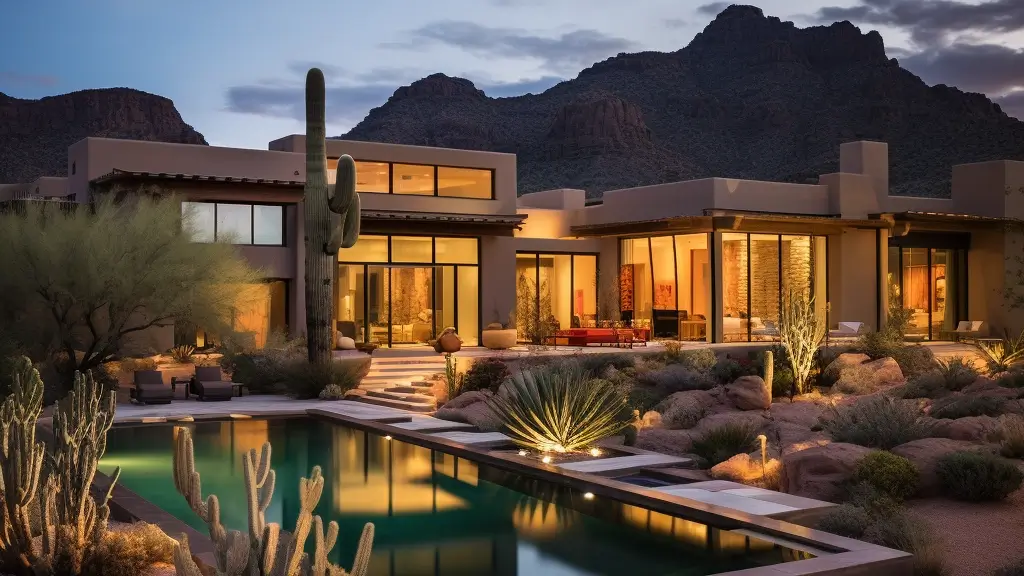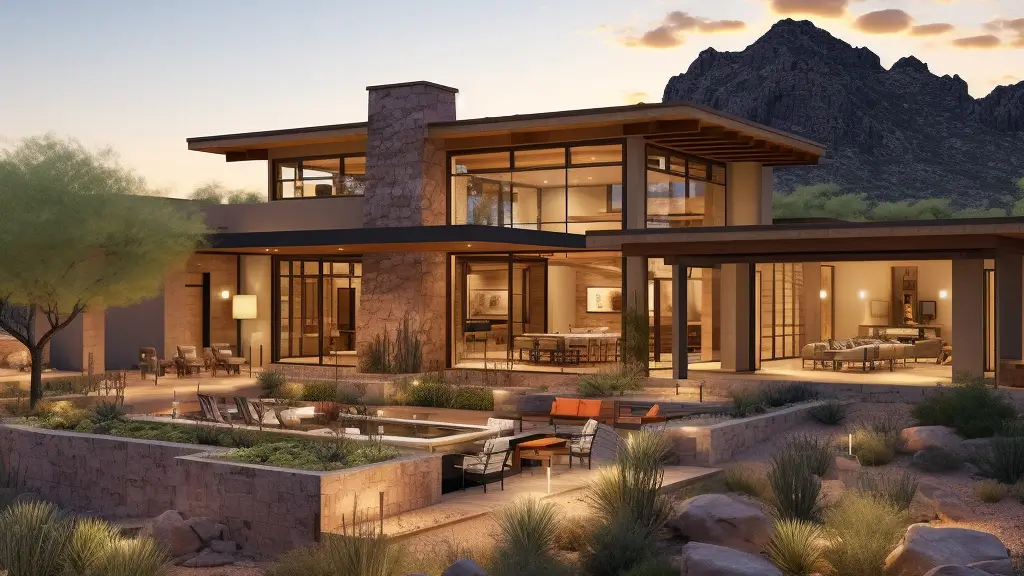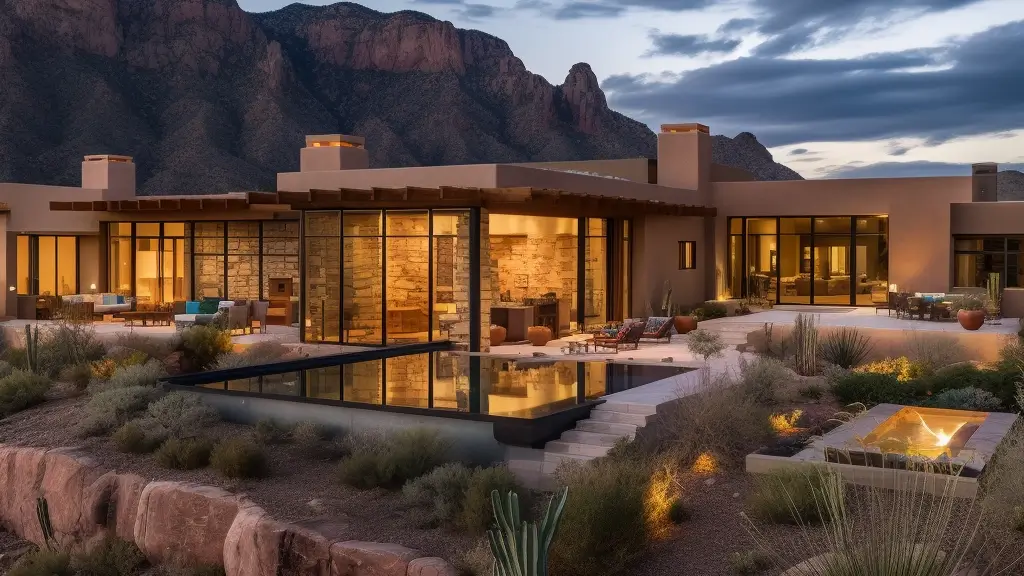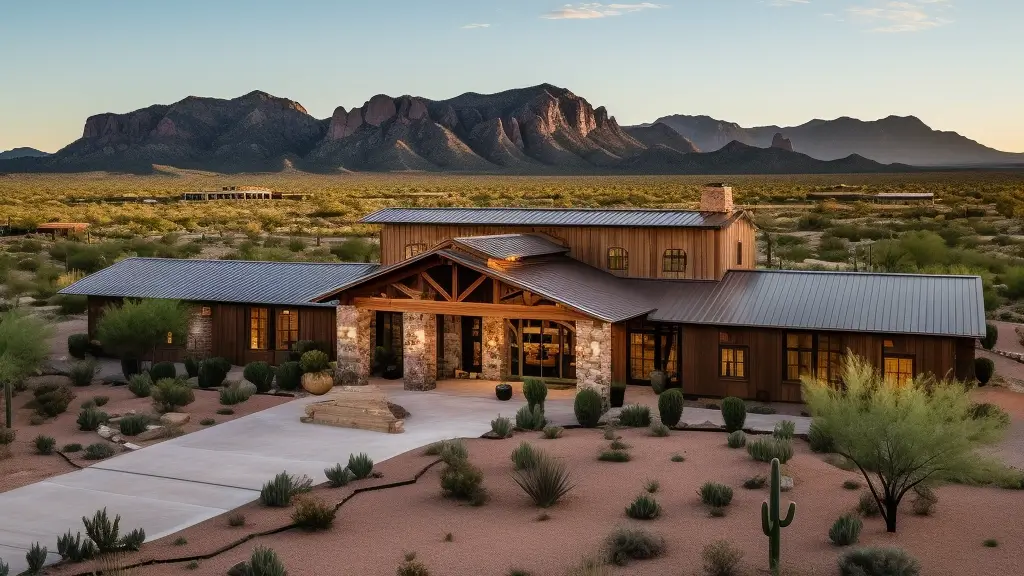Navigating the Ins and Outs of Construction Loans
Building your dream home is an exciting process. One of the biggest challenges that many aspiring custom homeowners face is financing the construction of their custom home. Construction loans are specialized financial tool for qualified applicants and require a licensed, bonded and insured General Contractor like Sunstone Development and Construction with decades of experience working with lending institutions. In this comprehensive guide, we will navigate the intricate ins and outs of construction loans, equipping you with the knowledge and confidence you need to embark on this exhilarating adventure of home building finance. Here’s what you need to know to bring your dream home to life.
When embarking on a construction project in Tucson, securing financing is a crucial and often difficult component of bringing your vision to life. It’s important to understand the difference between lenders and banks and the financial products they can offer. While banks are financial institutions that take deposits and lend money, lenders specialize in providing loans for various purposes. A lender may be a bank, but it could also be an online financing company or a private individual. By weighing the pros and cons of each option, you can find the best fit for your financial needs and goals. Understanding these distinctions can help you make informed decisions when it comes to securing a Tucson construction loan.
Understand the Difference Between Non-Recourse Construction Lenders and Traditional Home Loans
- Loan Purpose: Non-recourse construction loans are primarily used for the construction of a new property, typically a custom built home. Home loans, on the other hand, are used to purchase an existing, already constructed property.
- Risk Assessment: Non-recourse construction loans carry a higher risk for lenders as the property is not yet constructed. In contrast, home loans pose less risk because the property already exists and can easily be evaluated.
- Collateral: The borrower’s personal liability is limited in a non-recourse construction loan, as the loan is secured by the property itself. However, in home loans, the borrower is personally liable, and failure to pay can lead to foreclosure.
- Loan Disbursement: Non-recourse construction loans are typically disbursed in stages, as per the progress of the construction. Home loans, conversely, are generally disbursed in a lump sum at the time of property purchase.
- Interest Rates: Due to the higher risk associated, non-recourse construction loans often have higher interest rates as compared to home loans.
Income Requirements: Construction Loan Vs Home Mortgage
Qualifying for a construction loan often involves a more rigorous process compared to regular home loans, due to the inherent risks associated with construction. Lenders typically require a high credit score, low debt-to-income ratio, and a detailed plan of the construction project, including timeline and budget. Moreover, they usually ask for a significant down payment, often 20-30% of the loan amount, as an added measure of security. A crucial prerequisite is ownership of the land on which the property is to be built. Banks generally won’t approve a construction loan unless the borrower already owns the land, ensuring the borrower has a vested interest in the project’s completion.
- Construction Loan: Income requirements for construction loans usually depend on the cost of the project and the borrower’s creditworthiness. Lenders often require proof of stable and consistent income to ensure that the borrower can make timely payments throughout the construction phase. Some lenders may also look for a debt-to-income ratio (DTI) below 45% and a good credit score, typically above 680.
- Home Mortgage: For home mortgages, lenders typically require a stable employment history, often two years in the same job. They look at your gross monthly income and how much debt you owe to determine whether you can afford the home loan payments. The ideal DTI ratio for home mortgages is usually below 36%, although some lenders may allow up to 43%. A good credit score, often 640 or above, is also a common requirement.
Before You Begin: Construction Drawings and Project Planning
Construction plans are typically required before securing financing for a project. Lenders need a thorough understanding of the project, including its scope, scale, and cost, to accurately assess the risk involved. These plans help lenders determine whether the project is feasible and if it aligns with their lending guidelines. It’s essential to have detailed construction plans, including architectural drawings and a comprehensive budget, ready when approaching lenders for a construction loan.
The cost of hiring an architect for a custom home can vary significantly depending on the complexity of the project and the reputation of the architect. Generally, architects charge between 5% and 20% of the total project cost. On average, for a high-end custom home construction, which could cost around $1,500,000, architectural fees could range from $75,000 to $300,000. Some architects may also charge on an hourly basis, usually ranging from $70 to $250 per hour. It’s essential to remember that while these costs may seem substantial, a well-designed home by a professional architect can potentially increase the resale value and overall appeal of your property.
Calculate the Cost of Home Construction
It’s crucial to ensure that you have a solid plan in place before beginning construction to avoid any unpleasant surprises when building your custom home. That’s where a construction loan calculator comes into play. Calculating the estimated cost of your home construction will help you determine how much you need to borrow and what your monthly payments will be. This will allow you to create a realistic budget and avoid overspending.
While costs can vary depending on the materials used, design complexity, and current labor rates, a rough estimate is between $200 and $450 per square foot in Tucson, Arizona. Note that this is for a basic home construction; costs can increase substantially for luxury or custom designs. Furthermore, unforeseen complications during the construction process such as site preparation and engineering can also affect the final cost.
Timeline for Design and Construction of a Custom Home in Southern Arizona
Typically, the design and construction timeline for a large custom home in Southern Arizona can span anywhere from 10 to 16 months. The process kicks off with approximately 1-2 months dedicated to pre-design and architectural design stages. This phase involves meetings between the homeowner and the architect, finalizing the home’s concept, and creating detailed blueprints.
The next step is obtaining necessary permits and approvals, which can take anywhere from 1 to 3 months depending on the complexity of the design and local regulations. Once all the necessary permits are secured, the construction phase begins. This is the most time-consuming part of the process, often requiring 6 to 12 months, depending on the home’s size, the complexity of the design, and weather conditions.
The Importance of Selecting the Right Custom Home Builder
The process of selecting the right custom home builder is an essential step in your home construction journey. This choice significantly influences the quality of workmanship, the adherence to timelines, and the overall construction experience. A competent builder brings a wealth of experience, ensuring that potential issues are flagged early, and the project stays within the agreed timeframe and budget. Moreover, a reputable home builder maintains a transparent line of communication, keeping you informed about the project’s progress and any necessary adjustments. Therefore, spend ample time researching, conducting interviews, and checking references to find a builder who aligns with your vision, understands your design aesthetics, and meets your quality standards. Making the right choice would mean a smooth construction process, resulting in a house that truly feels like home.
Factors to Consider When Selecting a Tucson Custom Home Builder
- Experience: This is a critical factor while choosing a builder. Ensure the builder has substantial experience in constructing custom homes, particularly in Tucson, as they would be familiar with the local regulations and construction challenges. Daniel Boveington, Owner and licensed General Contractor at Sunstone Development and Construction started building over 50 years ago and has over 40 years of construction management experience.
- Reputation: Research the builder’s reputation within the community. You can check online reviews, ask for client references, and visit some of their completed projects.
- Communication: The builder should maintain clear lines of communication. They should be able to understand your vision, preferences, and answer any questions you might have sincerely.
- Quality of Work: Quality should never be compromised. Examine the builder’s past projects for the quality of materials used, attention to detail, and overall workmanship.
- Project Management: The builder should have an efficient project management strategy. They should provide realistic timelines, manage the workforce effectively, and have a plan in place for any unexpected setbacks.
- Price: While cost should not be the only determining factor, it is essential to check if the builder’s pricing fits within your budget. They should provide a detailed and transparent cost breakdown.
- Warranty and Service: A reputable builder would offer a warranty for their work and provide prompt service if any issues arise post-construction.
- Integrity and Transparency: Look for a builder who operates with integrity, is honest about the construction process, and upfront about potential challenges and solutions.
Remember, the goal is to find a builder who you trust and feel comfortable working with, as you’ll be spending a considerable amount of time collaborating on your dream home project.
Securing funding will require your lending institution approve of and work closely with your builder, so choosing the right builder for your home project involves comprehensive research and thorough assessment. Key factors to consider include the builder’s experience, reputation, communication skills, quality of work, project management capabilities, pricing, warranty, and service, as well as their integrity and transparency. Remember, it’s crucial to find a builder who aligns with your vision and whom you can trust, as this collaboration forms the foundation for realizing your dream home. The cost should not overshadow the importance of quality and workmanship, and clear communication lines should always be maintained. Ultimately, the success of your project hinges on this critical choice.
Contact us for more information and recommendation for lenders, design services and support on your custom home construction in Southern Arizona!



